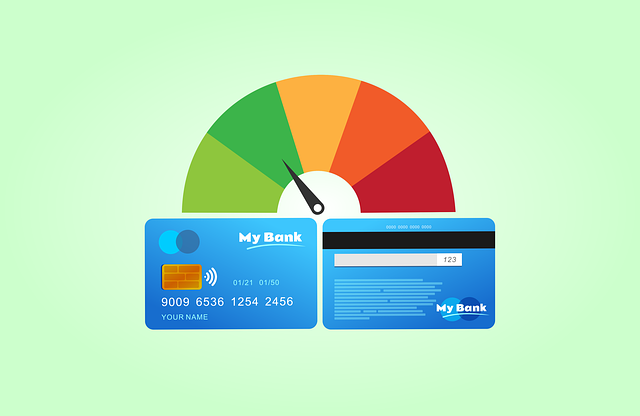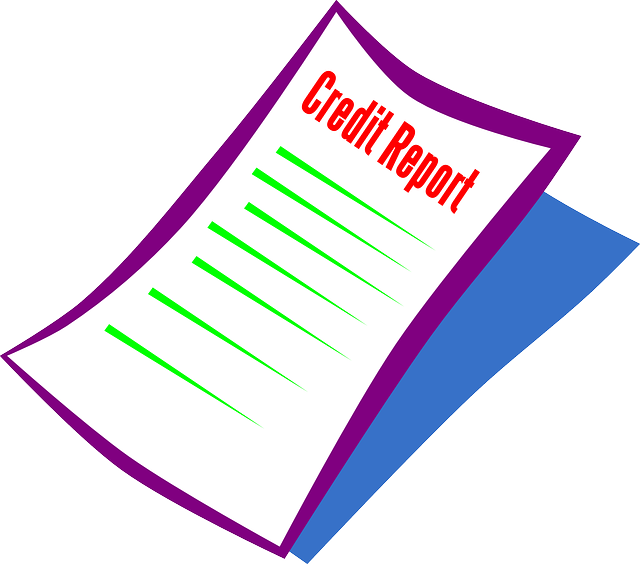What are Credit Scores & Why are they important?

A credit score is a three-digit number, typically ranging from 300-850, that significantly impacts your financial options. Lenders, credit card issuers, and other financial services companies use credit scores to determine an individual’s creditworthiness.
A high credit score means a person is more likely to repay a loan on time and in full. That translates to higher creditworthiness because the person is less of a risk for creditors.
On the other hand, a low credit score typically indicates a person is less reliable in making payments. A very low score indicates a person might default on a loan. The lower your score, the more creditors perceive lending you money as risky.
What’s a Good Credit Score?

There’s no dividing line between a good credit score and a bad credit score. Instead, there are credit score ranges that let you know how lenders tend to view your score.
The most commonly accepted FICO score ranges are:
- Exceptional: 800-850.
- Very good: 740-799.
- Good: 670-739.
- Fair: 580-669.
- Poor: 300-579.
The average FICO score in 2022 was 714. However, each lender sets its own range, especially for business financing.
Traditional lenders like banks and credit unions have higher minimum score requirements. Alternative and bad credit business loan lenders have much lower thresholds.
What are the Five Factors that determine a Credit Score?

The most commonly used credit score is the FICO® credit score which has been used since 1989. Another consumer credit scoring model, VantageScore®, has gained market share since its 2006 introduction, but FICO scores remain the most important.
Over 90% of the top lenders use FICO scores daily for billions of dollars in credit decisions. Fortunately, both scoring models primarily use the same factors in your credit file to determine your score.
Here are the five factors that the credit bureaus use to calculate credit scores:
- Payment History: 35%.
- Amounts Owed: 30%.
- Length of Credit History: 15%.
- Credit Mix: 10%.
- New Credit: 10%.
Payment History (35%)
Payment history accounts for 35% of your FICO score and is the largest factor. It makes sense since creditors and lenders want to ensure you’ll make your loan payments. Past behavior best predicts future behavior, so creditors want to ensure you’ve paid past credit accounts.
Timely payments gradually increase your score over time. Many credit card companies won’t report a late payment if it’s a day or two after the due date. It’s more common to wait until the next billing cycle before the report gets sent to credit reporting agencies.
Once a late payment is reported, it will lower your score, especially the longer it goes unpaid. A payment that’s 90 days late will lower your score more than a payment that’s 30 days late. Credit accounts that go unpaid for a long time will eventually go into default and may end up with a collection agency. Defaulted accounts or those in collections significantly and negatively impact your FICO score.
However, these payments don’t last on your report forever. Making on-time payments for your other credit accounts and settling any debts owed will repair your credit over time. Late payments from years ago have much less impact than recent late payment reports.
Amounts Owed (30%)
The current debt you owe is another significant chunk of your FICO score at 30% of the total. Existing debts include loan and credit card balances. Credit scoring models use the credit utilization ratio to calculate the impact of amounts owed on your FICO score. It’s also called the credit utilization ratio, credit usage ratio, or credit usage rate.
The credit utilization ratio takes the amount you owe over your total credit limit and represents it as a percentage. If your debt totals $1,000 and you have a $10,000 limit, your credit utilization ($1000/$10,000) is 10%.
High credit utilization lowers your FICO score. It’s recommended that you keep your credit utilization below 30%. People with excellent credit scores (800-850) typically have credit usage rates in the single digits.
Length of Credit History (15%)
Your length of credit history, also called account history or time in file, refers to how long your finance company accounts have been open. Recently opened credit accounts have less track record, while longstanding accounts are seen as more reliable.
Most credit bureaus use your average account length when determining how this factor impacts your score. It adds up the age of all your accounts and divides that by the number of accounts.
For example, let’s say you have one account open for 10 years, another for 12 years, and one for 2 years. The total is 24 years, divided by the number of accounts, 3, which gives you an average age of 8 years. A FICO study revealed that people with a score in the 800-850 range have an average account history of 128 months (a little over 10.5 years).
Credit Mix (10%)
Having different types of credit accounts has a smaller impact on your score at 10%. Examples of different credit include a car loan, revolving credit accounts like credit cards, mortgage loans, and consumer credit.
New Credit (10%)
Opening new credit accounts requires hard credit inquiries, making up 10% of your score. Many recent hard inquiries lower your score. New accounts also impact your average credit history. However, a new account raises your credit limit, which could lower your credit utilization rate.
Note: If rate shopping a student loan or mortgage over a couple of weeks, credit reporting agencies lump those together as one inquiry
Credit Report Information That Doesn’t Impact Credit Scores
Credit reports also include personal identification information (PII) and demographic information. This information doesn’t factor into credit score calculations. It primarily verifies your identity and tracks credit scoring information by demographics.
Information that doesn’t impact your score includes the following:
- Your race, color, religion, national origin, sex, or marital status.
- Your age.
- Employment, including where your work, salary, hiring date, and employment history.
- Where you live or previous addresses.
- Soft credit inquiries.
Who determines Credit Scores?
The three major credit bureaus are Experian, Equifax, and TransUnion. Each one produces a credit report tied to your social security number. The information in your credit reports determines your score.
Having a different FICO score at each bureau is common because they calculate your score based on their scoring model. The three bureaus developed VantageScores to standardize consumer credit scoring, which is why your VantageScore is the same for each credit bureau.
Why does my personal Credit Score matter for Small Business Loans?

Small business loan lenders consider your personal credit when making credit decisions. As with consumer lending products, a high FICO score helps you access the most favorable business loan rates and terms.
Your personal credit score is weighed more heavily if you haven’t built business credit yet. However, even if you have established business credit, commercial lenders consider personal and business credit in their decisions.
Commercial lending products include business term loans, business lines of credit, SBA loans, commercial real estate loans, equipment financing, invoice financing, merchant cash advances, and more. A lower score limits which of these products you can access, and it means you’ll usually receive lower borrowing amounts, higher interest rates, shorter terms, and more frequent payments.
Frequently Asked Questions
Here are the most common questions about credit score components.
What is the most important Factor for a Credit Score?

Payment history is the most significant percentage of your credit score. However, the debt owed is a close second. These two factors make up a combined 65% of your FICO score.
While the other factors in your score make up each make up a much lower percentage, they combine for 35% of your score. Several of these factors work in tandem.
For example, making on-time payments ultimately lowers the amounts you owe. A long account history also means you’ll have an extended payment history for that account.
How can I improve my Credit Score?
Boosting your credit score requires understanding the factors that impact it and developing a plan to improve each area. It’s best to focus on the payment history and credit usage as they make up most of your score.
Making Your Payments
As mentioned, payment history is the most important credit score factor. Unfortunately, payments take time to move the needle on your credit score, but it’s the most sustainable way to raise it. You can look into adding payments that aren’t typically included in a credit report to help.
Some utility and insurance companies report payments to the credit bureaus. You can try contacting your utility providers to see if they report.
You can also try using a service like Experian Boost®, which adds utility, insurance, and subscription service payments to your score. If you have a positive history of making Netflix payments, for example, adding it to your payment history could bump your credit score.
Paying Down Debt
Paying down the debt you owe will improve your credit score, especially for revolving accounts. Getting credit utilization below 30% (and as low as possible) is essential. One option is opening a new account, which will raise your credit limit and lower your utilization ratio if you can’t pay off the debt.
However, new accounts result in hard inquiries that could lower your score. It also impacts your average length of credit history.
Another option is to take out a debt consolidation loan to pay off your credit card accounts. That could also help you get a lower rate and more manageable monthly payments. But taking out a new loan has risks, so weigh this option carefully. And if you do take out a debt consolidation loan, it’s vital that you avoid the pitfall of adding new debt to your credit card(s).
Other Ways to Manage Credit
Those are the two most impactful ways to improve your credit score. Other necessary steps include:
- Don’t close older credit accounts or lower available credit.
- Have a good credit mix for all your accounts.
- Avoid opening too many new credit accounts in a short time.
Are there Business Loans for Bad Credit?
Yes, there are business loans for bad credit. You’ll sometimes see these listed as “bad credit business loans” or “business loans with bad credit.”
However, getting a business loan with bad credit is more challenging. You’ll likely have to apply to an alternative online lender or marketplace, like UCS. Traditional lenders like banks and credit unions usually won’t issue a bad credit business loan.
In addition to having fewer loan options, small business loans for bad credit usually have lower credit limits, higher interest rates, additional fees, shorter terms, and frequent payments. One way to think of a business loan for bad credit is as a form of bridge financing.
Bad credit business loans can provide short-term financing to help support operations. Your credit could improve as you repay the loan and grow the business. Once you have a better credit score, a longer time in business, and higher revenue, you can qualify for a longer-term, lower-cost loan. In some cases, you can use the long-term loan funds to pay off the bad credit business loan.
Bad Credit Business Loan Pros & Cons

Pros:
- Accessible financing for borrowers with a low credit score.
- Could potentially help build or repair credit with timely payments.
- Might be able to use the funds to pay off existing debt.
- Quick and easy online applications.
- Usually fast approval and funding times.
Cons:
- Higher interest rates & fees than conventional loans.
- Lower borrowing amounts than traditional business loans.
- Typically short-term financing with frequent repayments.
- Might require collateral or a personal guarantee.
- Could require automatic payment withdrawals.
- Fewer options for lenders and loan types.
Understanding Credit Score Factors – Final Thoughts

Your credit score significantly impacts your personal and business loan opportunities and costs. The difference between an excellent and fair credit score could equate to a difference of thousands of dollars in interest for the same loan.
Effectively managing your credit score requires understanding the factors that comprise it. The most important factors are making timely payments and keeping credit usage below 30%. Having a good credit mix, long credit history, and avoiding too many recent hard inquiries are also important ways to keep your credit score high.
Contact us if you have more questions about managing your credit or to apply for a small business loan. Our loan experts can help you find the most advantageous loans for your credit score.













